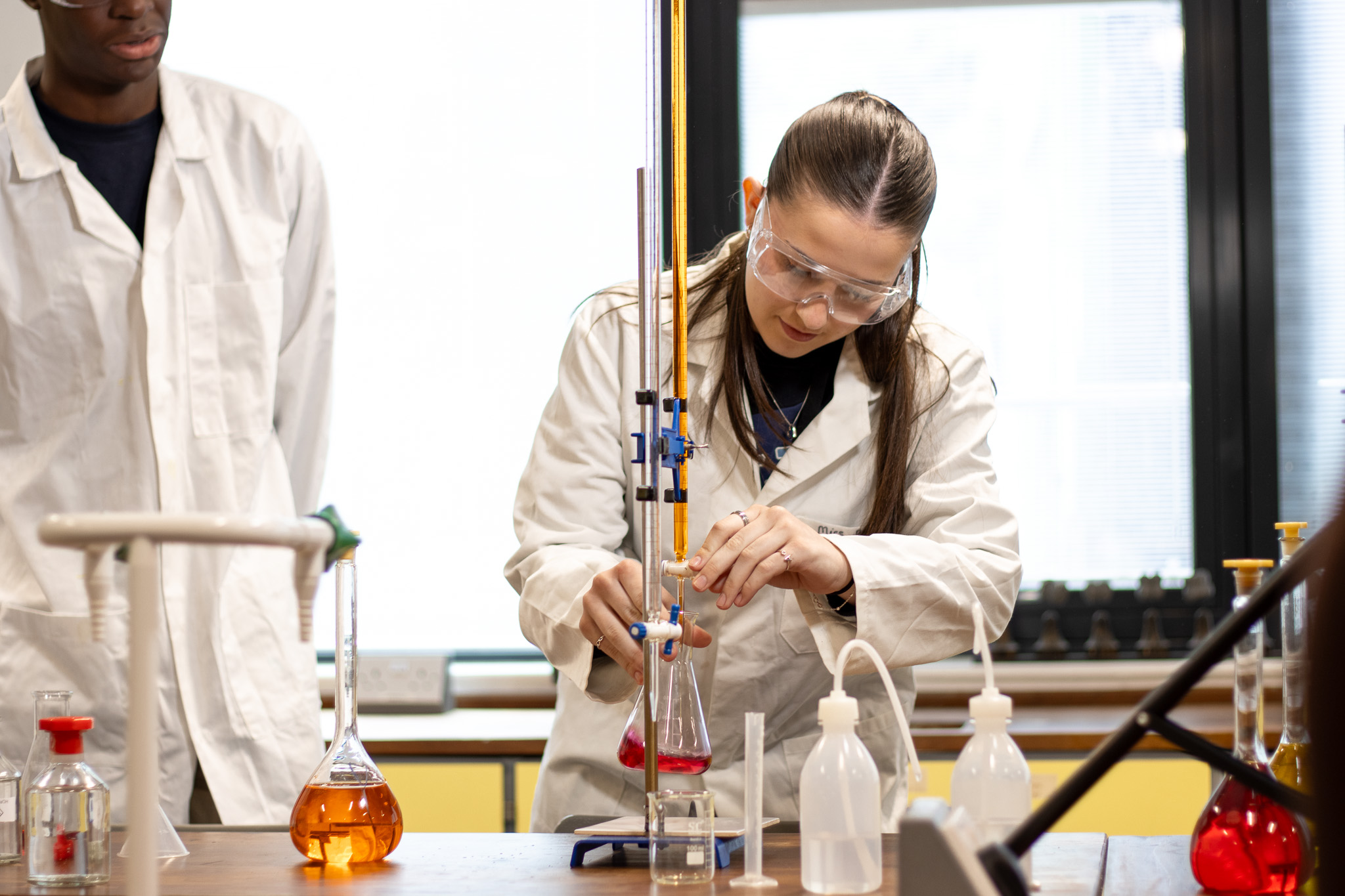
Applied Science BTEC Level 3 (Diploma)
Equivalent
2 A Level equivalent
Qualification
BTEC Level 3 Diploma
Results
D*D* 64% (2019)
Awarding Body
BTEC Pearson
Applied Science BTEC Level 3 (Diploma) Overview
Applied Science BTEC Level 3 (Diploma) is a two-year course. After the first year, students receive an Extended Certificate, equivalent to 1 A level. This qualification leads to a full Diploma in the second year, equivalent to 2 A levels. The course consists of 10 lessons per week for this course.
Learners will acquire a range of transferable skills, preparing them for Higher Education and future employment. They will gain knowledge of general laboratory skills, research procedures, and specific scientific topics.
This course is assessed through a mixture of exams, timed tasks, and assignments.
Extended Certificate (Year 1)
Unit 1- Principles and Applications of Science I
Externally assessed written examination in three sections (A, B & C) each of 30 marks.
Section A – Chemistry (40 mins)
Section B – Biology (40 mins)
Section C – Physics (40 mins)
The paper consists of multiple choice, calculations, short answer and open response questions.
Unit 2 – Practical Scientific Procedures and Techniques
Internally assessed & assignment based
Learning Aim A – Undertake titration and colorimetry to determine the concentration of solutions
Learning Aim B – Undertake calorimetry to study cooling curves
Learning Aim C – Undertake chromatographic techniques to identify components in mixtures
Learning Aim D – Review of personal development of scientific skills for laboratory work
Unit 3 – Science Investigation Skills
Externally assessed ‘TASK’. Learners cover the stages involved and the skills needed in planning, data collection, interpretation of results, conclusion and evaluation.
Assessed through a written task worth 60 marks completed in a single supervised sitting. In order to complete this task, students need to collect data.
Unit 9 – Human regulation and Reproduction
Internally assessed and assignment based.
This unit will give learners an understanding of how in the internal body environment is regulated and controlled within set parameters to enable key bodily process to take place.
This qualification will provide learners with a wide range of transferable skills that will act as a sound basis for both Higher Education and future employment. Students will have gained a good working knowledge of general laboratory skills and research procedures as well as the specific scientific topics.
5 C’s at GCSE, or equivalent vocational qualifications, including a grade CC in GCSE Science, a grade C in GCSE Maths or Numeracy, and a grade C in GCSE English*
A grade C in a discursive subject like History, Religious Studies or English Literature can be used as an alternative for English. A minimum of a grade D in GCSE English is required. A grade CC in GCSE Applied Science can be used as a replacement for GCSE Science.

